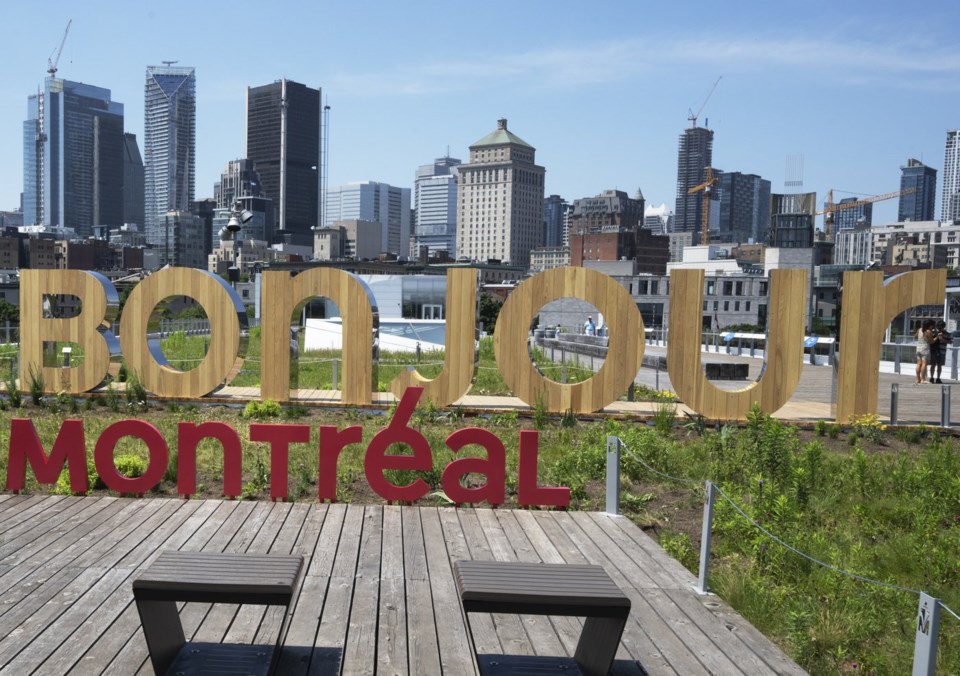MONTREAL — The trade war between Canada and the United States hasn't discouraged foreign companies from investing in Montreal, but recent changes to federal and provincial immigration policies are causing the business community some concern, says an economic development agency.
Foreign investment in Montreal rose 55 per cent to $1.69 billion in the first six months of the year compared to the same period in 2024, according to preliminary data from Montréal International.
The agency's CEO says that if he had been told last winter that foreign investment would rise after U.S. President Donald Trump threatened to impose crushing tariffs on the Canadian economy, "I wouldn’t have believed you."
"And I might’ve even said you were smoking something good,” Stéphane Paquet said in a recent interview.
So far this year the development agency supported 29 projects in the greater Montreal area that created 1,866 jobs with an average salary of $101,000. That's slightly down from 32 over the same period in 2024, but Paquet says the average value of this year's projects is higher.
Investments included projects in the technology sector, such as artificial intelligence and cybersecurity, as well as in manufacturing, aerospace, engineering, and environmental services. And despite tariffs imposed by U.S. President Donald Trump — and his recent threats to impose more — 46 per cent of foreign investment in Montreal so far this year is from American companies.
"In Texas, California, and New York, people apologize to our representatives," said Mark Maclean, vice-president of foreign investment at Montréal International, a non-profit funded by government and private sector grants. "People tell us that the (U.S.) government's comments don't represent them."
The interview with Paquet and Maclean was conducted a few hours before Trump threatened on Thursday evening to impose 35 per cent tariffs on Canadian goods starting Aug. 1.
But while the trade war hasn't dampened investors' appetite in Montreal, Paquet said they are more concerned about government policies that reduce the number of immigrants.
Last year Canada abruptly announced changes to immigration policies, affecting international students, foreign workers, and permanent residents. After years of strong population growth, the federal government expects the country's population to drop by 0.2 per cent in 2025 and in 2026. Growth is forecast to return in 2027 with a rise of 0.8 per cent.
Quebec, meanwhile, has been calling on Ottawa to cut the number of refugees and temporary foreign workers to the province in half, and earlier this week said it won't accept new applications from residents who want to sponsor their spouses, common-law partners or adult children for immigration until next year. In June the province announced it will drop permanent immigration targets to as low as 25,000 per year.
Paquet also lamented how it takes "months longer" in Quebec than in Ontario for a newcomer to obtain permanent residency.
"We need more stability when it comes to the different immigration policies," Paquet said.
This report by The Canadian Press was first published July 11, 2025.
Stéphane Rolland, The Canadian Press



